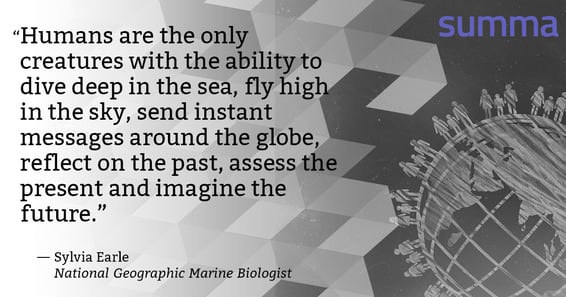As technology shrinks the globe from an electronic perspective, the Earth is still the same physical size it has always been. Twenty-four time zones around. So even though we have the ability to share massive amounts of complex data in real time, we still have to contend with the reality that our teammates might be asleep while we are at our most productive or when a crisis unfolds.
The challenge of broadly distributed teams
From the heyday of the ‘Kaizen’ quality movement in Japan in the 70s to the explosion of personal computing in the 80s, through object-orientation and the advent of the internet in the 90s, no one could have predicted that global throughput and storage capacity would practically disappear as architectural issues. What's more, it likely wasn't imagined that the side-effects of broadly-distributed teams would stand in the forefront of challenges of today’s global value streams.
Thousands of projects have been completed using lean, agile and other non-engineering approaches. An interesting challenge remains. How to match the ‘team spirit’ that agile teams try to cultivate with the hard facts of having both distributed and dispersed teams operating in different verbal languages, cultures, customs and time zones. The most interesting problem this generates can be the physical distance between the customers and the developers: the key to success in any agile undertaking.
Virtual co-location as an answer?
Is virtual co-location the answer to our problems? I wonder whether the attempt to ‘pretend’ that a team is physically together, does not adversely damage team’s abilities to work together across long distances and cultural chasms. Can management or reporting tools solve some of these problems? Can agile scaling also help in organizing diverse, disparate contributors? Can DevOps principles shrink the physical globe in the same way as the electronic globe?
Join our Agile2017 presentation
My colleague Gary Greenwood and I (@MitchSumma) have the honor of speaking at Agile2017 on this very subject—a new look at global value streams—and how we can use many strategies and tools to minimize the risks of ‘diffuse’ teams and continue to produce value in almost any arrangement of participants. We will present our talk “Co-location: it’s not you, it’s me. Coping with the realities of global teams” at Agile2017 on Wednesday, August 9, 2017, from 2:45 pm-3:15 pm in rooms Wekiwa 3 & 4.
The talk intends to persuade you that agile and lean principles apply at all levels of scale, from a small scrum and kanban team to large scale organizations with sophisticated DevOps practices and that these practices will ensure continued innovation and adaptability to the global value streams. We will also discuss using strategic and tactical proxies, identifying specific metrics that help us improve global efficiency and some ideas on how to manage team dependencies in a planetary workspace.


